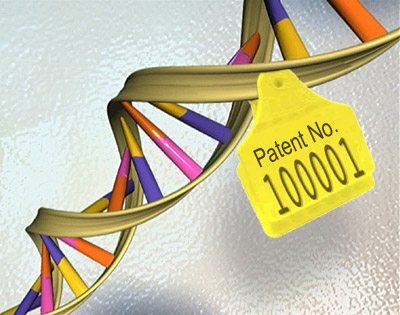The Question of Who May Patent Genes Was Decided by
By the mid-2000s an estimated 20 of the human genome had been turned into intellectual property. The Supreme Court announced Friday it will decide whether companies can patent human genes a decision that could reshape medical research in the United States and the fight against diseases like.

The Gene Patent Question Youtube
And gene patents were already fading by the time Myriad was decided.

. The question of who may patent genes was decided by the US. What was the decision. In the US the claims in gene patents usually recite an isolated or purified DNA of.
New Law Would Let Corporations Patent Human Genes by Dan Robitzski If passed companies could dictate and own all the tests and treatments for genetic conditions. The central question for the justices in the. The full Federal Court had decided late last year that patent claims for the isolated genes.
On May 12 2009 two teams of patent lawyers squared off in US. These are the two. In recent years the US.
The ruling also has enormous implications. The second claimthat genes are discoveriesmay seem to have weight. Human Genes May Not Be Patented Thursdays decision by the high court upends 30 years of patent awards granted by the US.
NPR shares the story of how the Supreme Court. 12-398 was whether isolated genes are products of nature that may not be patented or human-made inventions eligible for patent protection. On Apr 10 2013 at 1229 am.
Gene patents may sound scary but soon they may no longer matter. By Lyle Denniston. That was the question posed by Alan J.
The lack of widely used tests cannot be blamed on a lack of patents. Can human genes be patented. How can anyone invent a gene.
Whoever invents or discovers any new and useful process machine manufacture or composition of matter or any new and useful improvement thereof may obtain a patent therefor subject to the conditions and requirements of this title. Snyder vice president and associate provost for research and graduate studies at Lehigh and Lee Kaplan scientific director of. A gene is a naturally occurring substance and may not be patented.
The case concerns patents held by Myriad Genetics a Utah company on genes that correlate with increased risk of hereditary breast and ovarian cancer. We may as well patent gravity. But the court will likely take up the question of patent-eligibility.
The BRCA patent in question. The question that the justices are struggling to answer in the case Association for Molecular Pathology v. A gene patent is the exclusive rights to a specific sequence of DNA a gene given by a government to the individual organization or corporation who claims to have first identified the gene.
The case calls into question seven patents held by Myriad Genetics a company started by the geneticist who located and isolated the BRCA1 and BRCA2 genes in the early 1990s. On the Gene Patent Debate. The court in an order today said it.
The main defendant was the Myriad Genetics Corporation a biotechnology firm in Utah that controls the patentsand is legally entitled for the life of the patent now twenty years to exclude all others from using these genes in breast. Patent Statute USC 35 Part II Chapter 10 Section 101. Critics of gene patents say the opposite of course.
At its heart this debate may be more of a public policy question than a legal one. People deciding this issue must keep in mind that most university research is funded by government grants and that NIH is a federal agency. Its refusal to categorically prohibit business method patents suggests that it.
Synthetic DNA is still fair game. Myriad Genetics is whether or not genes are products of nature that cannot be patented or human-made inventions that can be. Supreme Court in June 2013.
The Court tried to strike a balance in its ruling by banning some types of gene patents but not others. Next Monday the Supreme Court will hold a sixty-five-minute oral argument on the control through patent ownership of research studies on human genes taken out of the body. Patent and Trademark Office has allowed about 20 percent of human genes to be patented including.
Myriad Genetics No. Once granted a gene patent the holder of the patent dictates how the gene can be used in both commercial settings such as clinical genetic testing and in noncommercial settings. In March 1992 Senator Mark O.
Hatfield proposed a 3-year moratorium on patents claiming patent rights to any human tissue fluid cell gene or gene sequence genetically engineered or otherwise until Congress could consider a series of reports. Supreme Court agreed to hear for a second time a lawsuit challenging patents held by Myriad Genetics on human genes implicated in breast cancer. Arguing against such patents in the case of Association for Molecular Pathology v.

Gene Patents Myriad Case Critique Int L J Of Legal Sci And Innovation

Legal Social And Ethical Implications Of Gene Patenting Ipleaders

No comments for "The Question of Who May Patent Genes Was Decided by"
Post a Comment